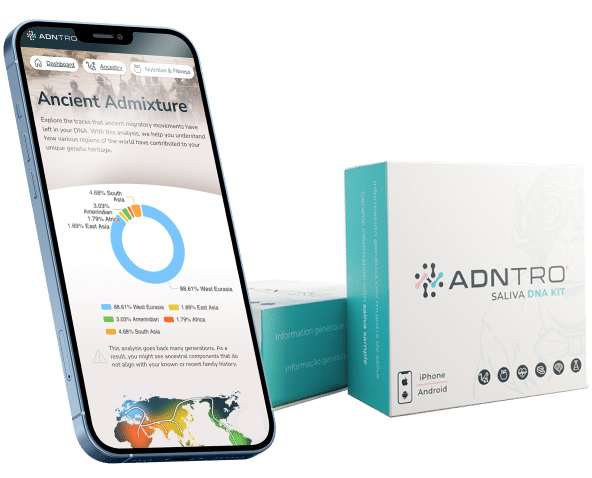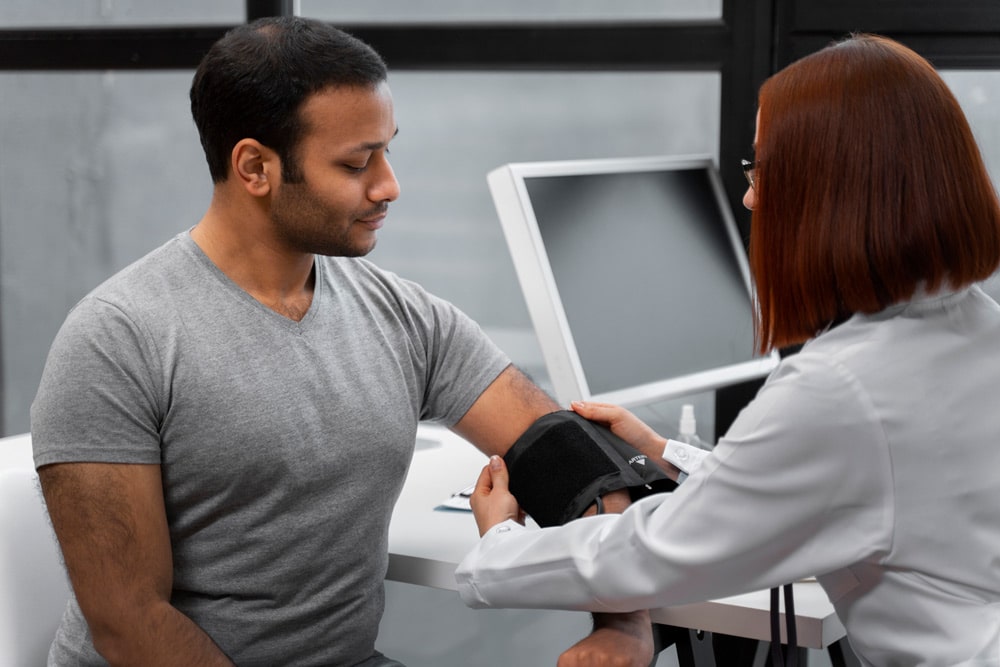At the end of the summer, many athletes and fitness enthusiasts go back to their exercise routine with enegy renewed and enthusiasm. This transition can be accompanied by an increase in the occurrence of sports injuries. Although the use of correct technique and equipment is vital to minimize these risks, there is one element that is often ignored: the influence of genetics on sports injuries.
Our genetics has an influence on the way our body reacts to exercise and the way it is affected. predisposition to specific injuries, such as anterior cruciate ligament, stress fractures. If you are interested in ankle injuries and Achilles tendon injuries, please see our article "Does genetics influence sports injuries? Part 1«.

Anterior cruciate ligament
The anterior cruciate ligament (ACL) is one of the main stabilizers of the knee and plays a crucial role in the rotational and anteroposterior stability of the joint by preventing the tibia from sliding outward in front of the femur. ACL injury is a common knee injury that affects the ligament in the center of the knee joint.
Injuries to this ligament are often associated with long recoveries and are a major concern for athletes, who are sometimes unable to return to the world of competition.
What can produce anterior cruciate ligament injuries?
ACL injuries generally occur during sports activities that involve rapid changes of direction, turns or sudden movements, such as soccer, basketball, skiing, among others. Some factors that may increase the risk of ACL injury include playing contact sports, poor landing after a jump and muscle imbalances.
Symptoms of anterior cruciate ligament injury
The most common symptoms of an ACL injury include severe pain in the knee just after the injury, swelling and inflammation in the knee in the first few hours after the injury, a "popping" sensation in the knee at the time of injury, instability or a sensation of the knee "slipping" or "giving way" when making movements.
Does genetics influence anterior cruciate ligament injuries?
Genetics play an important role in anterior cruciate ligament (ACL) injury. It has been found that there are genetic factors that can influence a person's susceptibility to ACL injury. The associated genetic variants can affect the structure of the body as they are located in genes such as COL1A1, COL3A that encode collagen proteins present in the ligaments. Some genetic variants in these genes have been associated with an increased risk of ACL injury.

Stress fracture
A stress fracture, is a bone injury caused by the accumulation of repetitive or excessive forces on a bone. Unlike traumatic fractures caused by acute injury, stress fractures develop gradually due to repetitive loading or constant stress placed on the bone. These fractures are common in elite athletes.
The prevalence of stress fracture period in elite athletes and military recruits ranges from 14 to 21%, and manifests most frequently in the lower extremities as localized pain that increases during exercise.
Why are stress fractures created?
Bone is continuously degraded and renewed by osteoclasts (multinucleated, motile, giant cells that degrade, resorb and remodel bone).
The pathophysiology of stress fractures is thought to be related to cyclic mechanical loading of bone, which stimulates an incomplete remodeling response.
Stress fractures occur when the repetitive load applied to the bone exceeds its capacity for repair and remodeling. This can happen due to several factors, such as a sudden increase in training intensity or duration.
Symptoms of stress fractures
Symptoms of a stress fracture may include localized pain that worsens with activity and improves with rest, mild swelling, tenderness to touch, increased pain during weight bearing and, in some cases, gait changes or limping.
Does genetics influence stress fracture injuries?
Genetics may play a role in susceptibility to stress fractures, although its influence is not yet fully understood. Some research suggests that certain genetic factors may be associated with an increased risk of developing stress fractures.
In particular, the role of genes related to bone structure such as COL1A2, which encodes type I collagen and could influence bone strength, has been studied.
However, it is important to note that genetics is not the only determining factor in stress fractures. Other factors, such as sports technique, level of physical activity, nutrition and bone quality, also play an important role in the occurrence of these injuries.

That's why knowing your genetic predisposition to sports injuries can prevent injuries, helping you to better understand your body and train smarter and safer. Discover the influence of genetics on sports injuries with the DNA TEST of ADNTRO or by upload your RAW DNA data!














